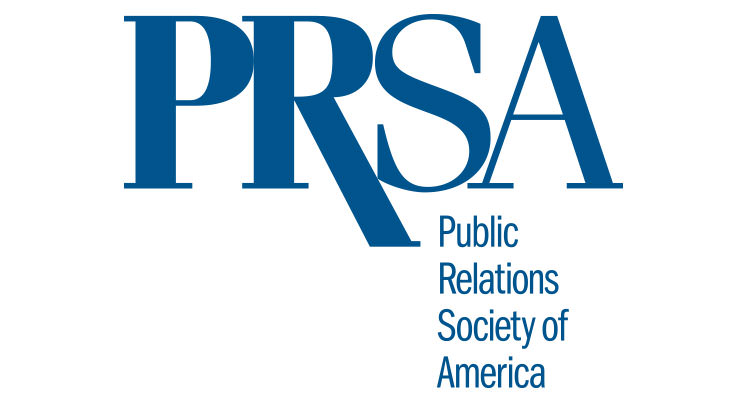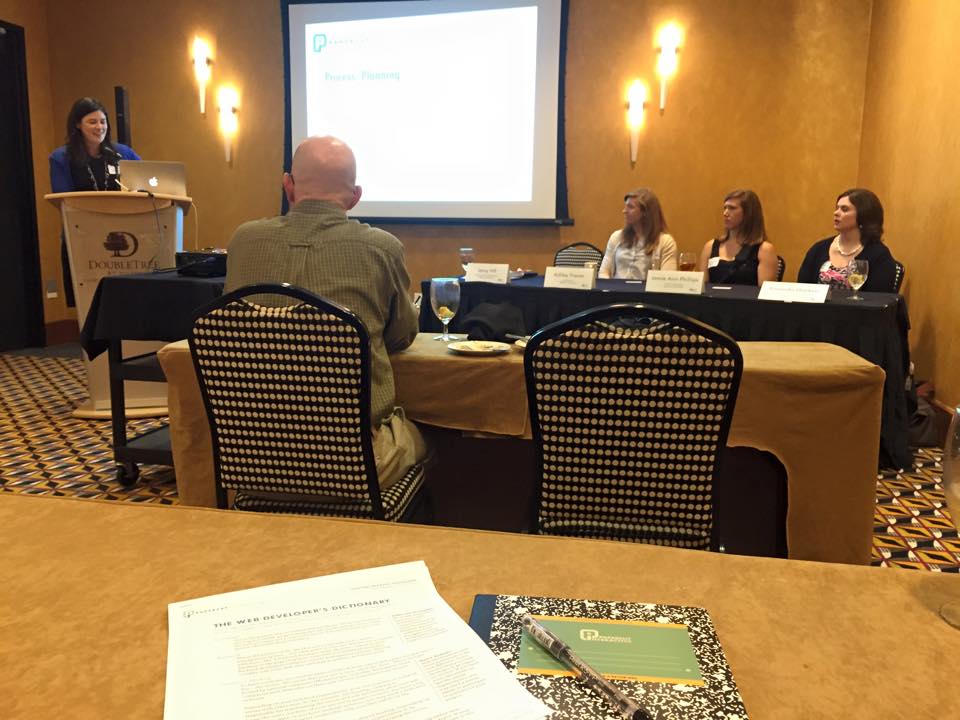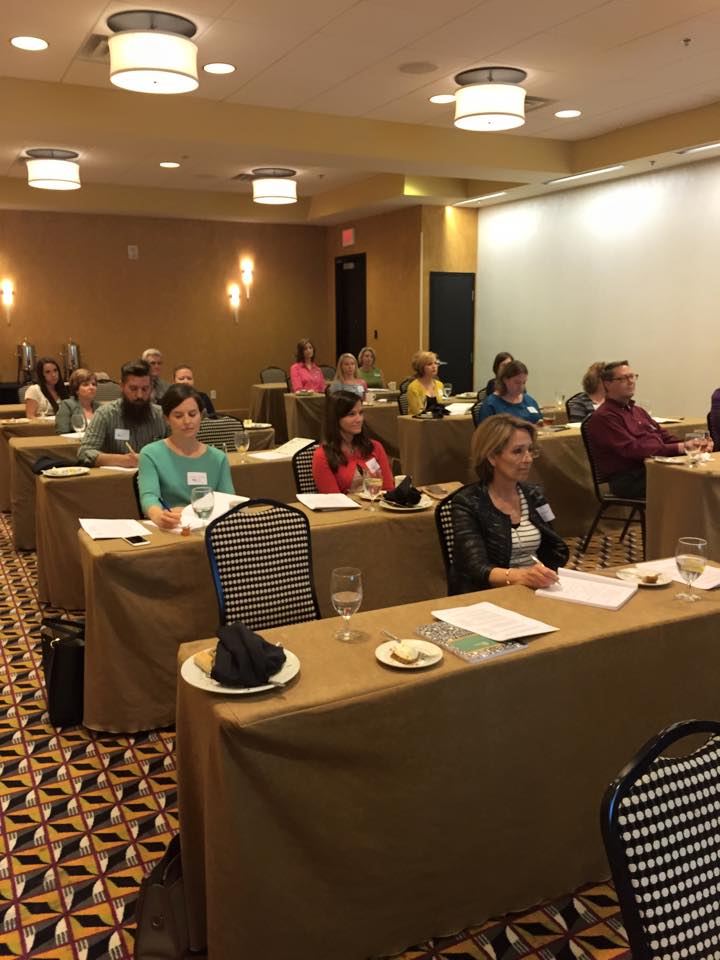Papercut Presents for PRSA Lookout

Last Friday was fun! Papercut got to teach a packed house of public relations professionals all about web design and website project management.
We were invited by the forward-thinking leadership team at the Lookout Chapter of the Public Relations Society of America (PRSA). They identified that web projects often land on their members’ desks, but web is pretty foreign to many of them. Their vision: learn enough about key terms, trends, and web development to be able to surprise the developers with whom they work.
We were pretty excited about the assignment – to get to tell a web developer’s “side of the story” and also to help folks understand the level of professionalism they should expect from their web team.
Our team worked together to create the presentation, thinking through each area of the development process, identifying where the “pain points” are for clients along the way, and compiling tips to help things go smoothly. To add to the usefulness of the session, Jamie Ann, Ashley, and Amanda accompanied me to answer questions related to design/frontend, project management, and SEO.
I mentioned it was packed – the topic drew a crowd from businesses all over Chattanooga and Dalton including the Chattanooga Area Chamber of Commerce, the Convention and Visitors Bureau, and the Chattanooga Times Free Press.
Special thanks to PRSA Lookout for the images below!

The Presentation
For starters, each attendee was given a handout that contained definitions of some common (and not-so-common) web terms. Many of these are also defined in our Web Developer’s Dictionary here on the blog. We wanted them to have this as a reference to use when their companies go through web redesign projects. We hope it comes in handy when they communicate with their developers!
Best Practices and Trends
Next, we talked about a few current best practices in web design, including responsive design, prioritizing content, embracing the browser as a medium, and conversion planning.
We also discussed some trends happening in the industry and a few of the pros and cons of each. These included:
- Parallax scrolling
- Flattening of design
- Huge photos
- Informative videos
- Hamburger navigation
Web Projects: Preparation, Partner Selection, and Responsibilities
We also took some time to run through the things PR and communications professionals should consider if they’ve been tasked with running the website project for their company. We grouped these into three sections: preparation, partner selection, and responsibilities.
Preparation
To get ahead of the game, project managers should do the following:
- Identify necessary conversions
- Review current analytics
- Plan content and begin writing
- Determine the budget for video and photography
Partner Selection
When it’s time to choose a website partner, consider the following:
- Your scope of work and the technical/design skills of your potential partners
- References and customer service/support track record
- The longevity of the relationship
Responsibilities
From a web development company’s perspective, client responsibilities include the following:
- Provide honest feedback and a candid introduction to internal politics, schedules, etc.
- Meet deadlines for content and approvals
- Review projects on multiple devices
Process and Promotion
We concluded with a brief overview of the various stages of a web design project, including design, frontend development, and backend development, as well as a high-level discussion of the various marketing tactics companies can use to promote their new sites after they go live, such as paid search, SEO, blogging, and social media.
Thanks, PRSA!
We’re grateful to the Lookout Chapter of the PRSA for giving us the opportunity to meet their members and discuss what we do every day. They asked some wonderful questions, and we hope we provided some useful information that will help make any upcoming website project stress free.
Papercut Can Speak to Your Group
If your group needs education about the world of website development, I’m happy to tailor a presentation for you. Contact me at 423.648.7773 to talk through your ideas.

